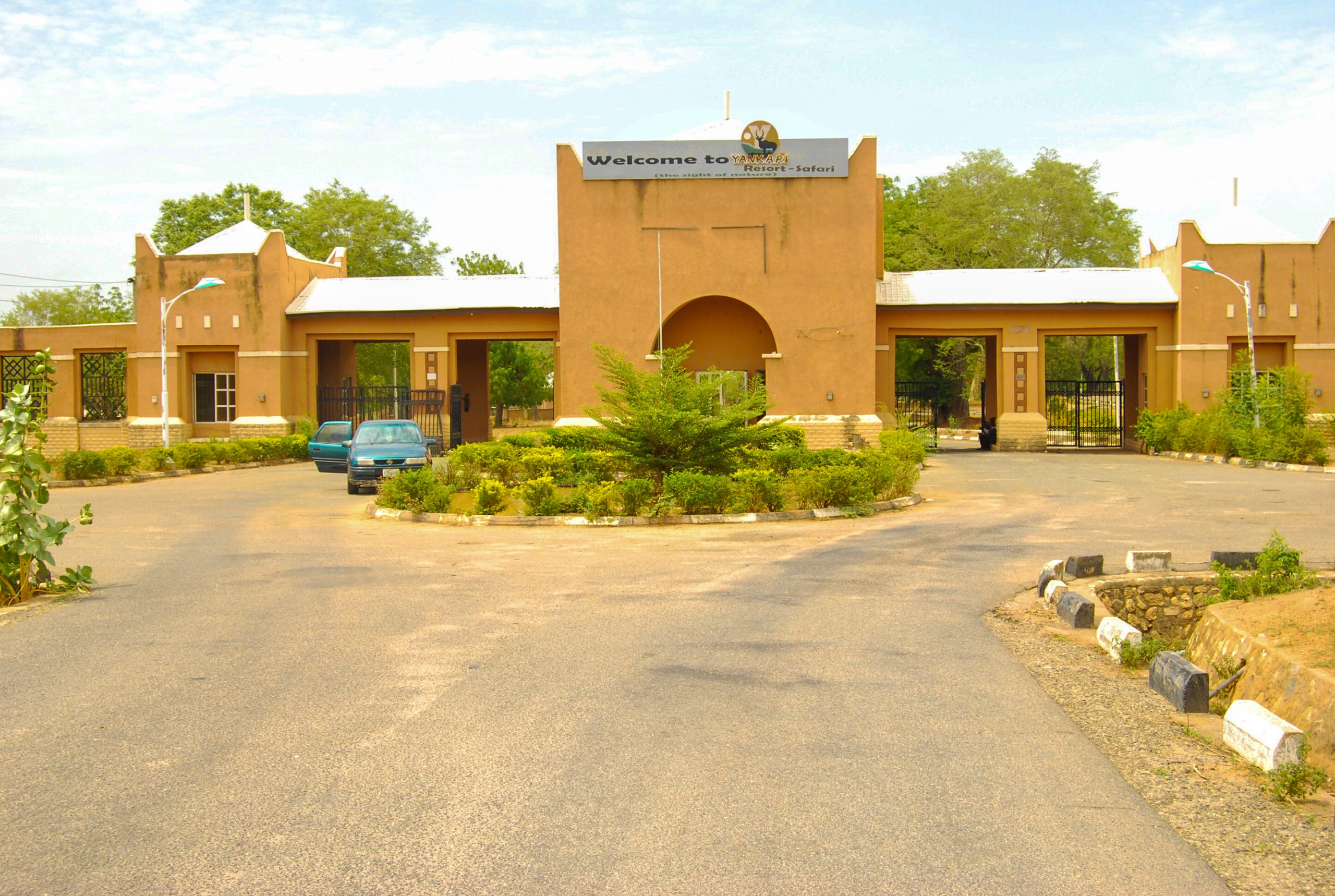Yankari Game Reserve, located in Bauchi State, northeastern Nigeria, is one of the most popular wildlife parks in the country, covering approximately 2,244 square kilometres. Established in 1956 as a game reserve, it was upgraded to Nigeria’s largest national park in 1991. The reserve is rich in wildlife, with major attractions including elephants, lions, antelopes, and a variety of bird species. Situated in the heart of the West African savannah, it offers visitors the opportunity to observe wildlife in their natural habitat. The park is also famous for its natural warm springs, particularly the Wikki Warm Springs, which is a well-known tourist attraction. Yankari Game Reserve plays a crucial role in promoting ecotourism in Nigeria, drawing both local and international visitors.
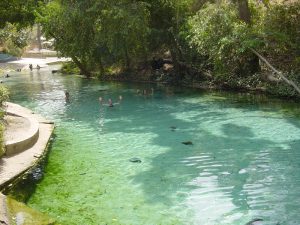
Overview
Formerly known as Yankari Game Reserve, Yankari National Park is Nigeria’s foremost wildlife park, located in Bauchi State, northeastern Nigeria. Covering an area of about 2,244 square kilometres (870 square miles), it is the largest and most diverse wildlife reserve in Nigeria and is rated among the best ecotourism sites in West Africa. Situated in the West African savanna zone, the park offers visitors the opportunity to observe wildlife in its natural habitat.
Yankari is renowned for housing the largest surviving population of elephants in Nigeria, making it crucial for the protection of these animals. The park is also home to other wildlife, including lions, leopards, hyenas, baboons, giraffes, and various types of antelopes such as the roan, waterbuck, bushbuck, and hartebeest. The park’s water channels support a rich biodiversity, including large populations of hippopotamuses and crocodiles.
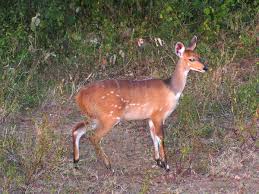
The park’s vegetation is primarily savanna, but it also includes grasslands, swampy areas, and dense bush. Among the must-see attractions at Yankari are the Wikki Warm Spring, which maintains a constant temperature of 31°C year-round, providing a refreshing spot for visitors. Other notable sites include the Marshall Caves, featuring 59 caves with ancient rock paintings, and the Dukkey Wells, a historical structure comprising 139 wells carved into sandstone escarpments for water storage.
Yankari National Park was established as a game reserve in 1956 and was officially designated a national park in 1991. It continues to play a vital role in conservation and tourism, offering visitors a chance to experience stunning natural scenery, rich cultural heritage, and remarkable wildlife.
A Brief History
Yankari National Park is a significant refuge for majestic wildlife and has a history spanning several centuries. Although the native people have not lived within the park for over a hundred years, archaeological remains, such as iron smelting areas and ancient caves, bear testimony to their past activities. These historical features, including furnaces excavated from the Delimiri and Ampara areas, are significant as they reflect early human activity in the region. Remarkably, these sites have withstood the effects of weathering.
The park’s modern history began in 1934 when the Northern Regional Committee proposed creating a pilot game reserve within the Bauchi Emirate. This initiative was led by Alhaji Muhammadu Ngeleruma, a minister in the former Northern Nigeria Ministry of Agriculture and Natural Resources. Ngeleruma, inspired by his visit to a game reserve in Sudan during a trip through East Africa, strongly supported establishing a similar reserve in Nigeria. His efforts highlighted that the Yankari region was well-suited for wildlife conservation due to its natural attributes.
In 1956, Yankari was officially gazetted as a Game Preservation Area by the Northern Nigeria Government when it was part of the Bauchi Province. A year later, the area was declared a Bauchi Native Authority Forest Reserve, paving the way for its development into a conservation reserve. Yankari was formally opened to the public as Nigeria’s premier game reserve on December 1, 1962. Over the years, the reserve has been managed by various governmental bodies, including the North Eastern State Government and, currently, the Bauchi State Government.
In 1991, Yankari was legally upgraded to a National Park under Decree 36 by the National Government, falling under the National Park Service. This change marked a new chapter in the park’s management, with a stronger focus on conserving its diverse flora and fauna and its archaeological features. For example, in the late 1990s, a significant rehabilitation project was launched to preserve these sites, supporting both heritage conservation and ecological tourism.
However, in 2006, Yankari was stripped of its National Park status following a petition by the Bauchi State Government, which assumed management of the park. Despite this change, Yankari continues to thrive as an ecotourism site, attracting visitors to its natural attractions, including wildlife and significant sites such as the Dukkey Wells, Marshall Caves, and the Anfara Iron Smelting Centre.
Ecological Diversity
Yankari National Park is a testament to Nigeria’s natural wonders, serving as a vital sanctuary for diverse ecological systems that are home to numerous animal species. Over fifty species of mammals have been identified within the park, making it one of the premier conservation centres in West Africa. Among the most notable are the African bush elephant, which boasts one of the largest populations on the continent, and the lion, whose population has been reported as critically low. Other large species include the olive baboon, patas monkey, Tantalus monkey, roan antelope, hartebeest, African buffalo, waterbuck, bushbuck, and hippopotamus, all contributing to the park’s rich ecosystem.
Yankari is also renowned for its rich avian diversity, with over 350 bird species recorded. This includes 130 resident birds, 50 Palearctic migrant birds from Europe and Asia, and various intra-African migrants. Some of the common avian species include the saddle-billed stork, helmeted guineafowl, African grey hornbill, and cattle egret, making the park a prime birding destination.
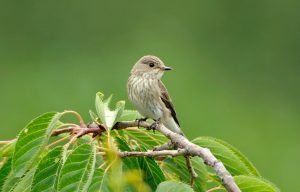
The park’s diverse habitats, ranging from dense forests and open savannas to riparian lands, support this biodiversity. The Gaji, Yashi, and Yuli rivers, along with several warm water springs, provide essential resources for the park’s flora and fauna. These water bodies sustain the park’s extensive and rich freshwater communities, including various fish species and other aquatic life.
Geologically, Yankari is located on a formation of sandstone, siltstone, and kaolinite, while the valleys contain more recent alluvial deposits. This geological background influences the soil and vegetation types, which are well-suited to support the park’s diverse fauna.
In conclusion, this work highlights Yankari’s significance as a Lion Conservation Unit, alongside Kainji National Park, contributing to the global effort to conserve lions. However, challenges persist, particularly the growing issue of human-wildlife conflict, as elephants increasingly invade local farms. Despite these challenges, Yankari National Park remains a crucial natural reserve for wildlife conservation, demonstrating that Nigeria’s natural heritage can successfully navigate the challenges of the modern world.
Visitor Experience
Yankari National Park is a premier vacation destination, offering a unique blend of natural beauty and historical intrigue. Located in Bauchi State, Nigeria, this expansive wildlife park allows visitors to observe some of Africa’s most cherished animals in their natural habitat. The park is renowned for its diverse flora and fauna, including elephants, lions, leopards, antelopes, giraffes, baboons, and hyenas.
One of the park’s standout features is the Wikki Warm Springs. Flowing at approximately 21 million litres per day from the Gaji River, this natural spring provides a warm, clear water experience where visitors can swim any time of day or night. Other springs, such as Dimmil, Gwan, and Nawulgo, also offer relaxing spots to unwind after exploring the park’s natural landscapes.
For history enthusiasts, Yankari National Park has much to offer. The Marshall Caves, with their 59 sandstone caves, feature ancient paintings and engravings that provide insights into the region’s early inhabitants. Nearby, well-preserved sandstone cisterns and other historical artefacts reveal the ingenuity of early locals in managing water resources.
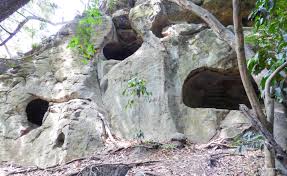
The park’s visitor centre, Wikki Camp, is located 42 kilometres from the main entrance. It offers a range of accommodations, from presidential suites to youth hostels, and is conveniently situated near the Wikki Warm Springs. The camp includes dining facilities, a bar, and conference rooms. Safari trips can be arranged daily from the camp, providing guided tours to enhance the park experience.
The museum at Wikki Camp is another highlight, featuring a collection of taxidermy specimens, including skins, teeth, and fully mounted animals from the park. It also serves as a centre for conservation, showcasing poacher traps and hunting equipment to highlight the ongoing efforts to protect the park’s natural resources.
Visitors should be aware that baboons in the park can become aggressive if they see plastic bags. It is also advisable to bring your own food, as the restaurant options may be limited. Additionally, only MTN and Airtel networks are available, and Wi-Fi is generally slow. However, these minor inconveniences are far outweighed by the park’s rich offerings.
Whether you’re seeking adventure, relaxation by the pool, or a dive into historical sites, Yankari National Park offers a versatile and exciting experience that makes it a must-visit destination in Nigeria.
Challenges and Conservations Outlook
Various issues affecting conservation and the overall health of the ecosystem at Yankari National Park include:
- Loss of Natural Vegetation: Overgrazing by large herds of livestock has led to significant loss of natural vegetation. This degradation impacts the park’s biodiversity.
- Harvesting and Hunting: The harvesting of animals for food and other purposes negatively affects populations of animals, birds, and mammals. Additionally, using prohibited fishing methods harms aquatic species and disrupts the ecological balance.
- Management Challenges: Ineffective management exacerbates these issues. Low wages and inadequate equipment for park employees hinder monitoring and protection efforts. Limited funds also restrict conservation activities and infrastructure maintenance, making it difficult to address threats effectively.
- Human Activities: Activities such as cutting down trees for fuel and producing charcoal, unauthorized logging, and harvesting non-forest wood products further strain the park’s ecosystems and natural habitats.
- Weak Conservation Laws: The enforcement of outdated and ineffective conservation laws fails to deter poachers and other illegal activities. Inconsistent prosecution allows many poachers to evade justice, leading to repeat offences and ongoing threats to wildlife.
Security issues add complexity to the situation. Community attacks and kidnapping threaten wildlife conservation programs and the safety of rangers, while the presence of armed groups within or near the park endangers both animal and human lives. Additionally, hydrocarbon exploration activities in the surrounding areas could pose ecological pressures, potentially threatening the park’s ecological status.
To address these challenges, several improvements can be made. Enhancing patrol structures, such as extending and repaving tracks, will improve surveillance and monitoring of conservation efforts. Increasing ranger capacity through training programs, particularly in firearms use and community engagement, is also crucial. Furthermore, inadequate legal actions and lenient punishments have hindered wildlife conservation efforts, making law reforms and stricter penalties essential.
Better interaction with local stakeholders can reduce illegal activities and overuse of natural resources. High-level monitoring and surveillance are necessary to respond to threats, and the increased use of equipment and methods is vital for handling park threats. Developing ecotourism could provide economic benefits and support conservation objectives, considering the park’s unique features and historical sites.
Therefore, the government must take action. Operational interventions to address current and future security threats, along with efforts to protect Yankari National Park, will significantly impact its role in conserving biological and ecological diversity.
Final Note
Yankari National Park stands as a classic example of Nigeria’s ecological and historical icons. Covering an area of 224,443 hectares, it continues to serve as a major refuge for wildlife, including the largest elephant population on the African continent. Key natural attractions include the Wikki Warm Springs and Marshall Caves, which also have historical significance.
Despite its importance, the park faces challenges such as poaching, habitat alteration, and management issues that threaten its stability. Addressing these challenges requires improvements in infrastructure, legal frameworks, and local community involvement. With these measures, Yankari can fulfil its tourism potential and enhance conservation efforts, continuing to be a symbol of West Africa’s ecological and historical value.
